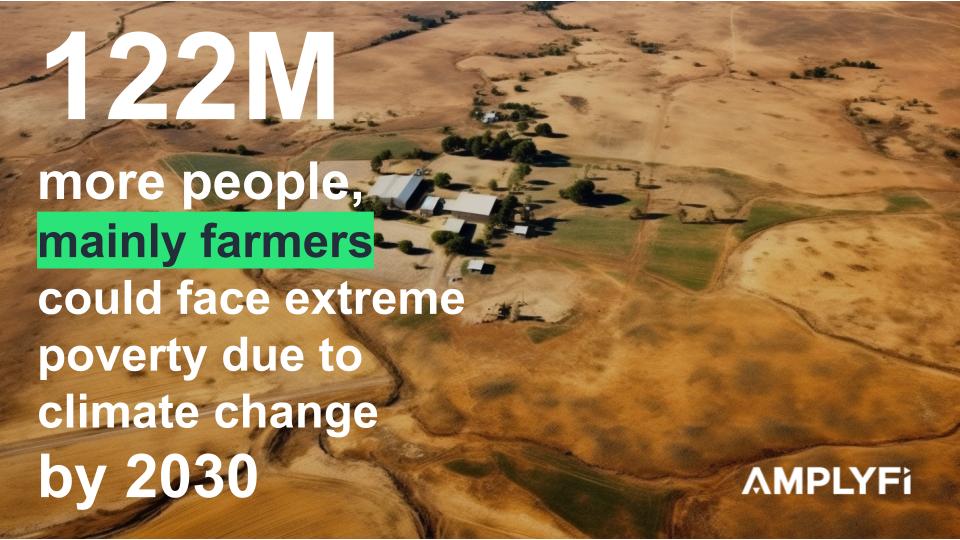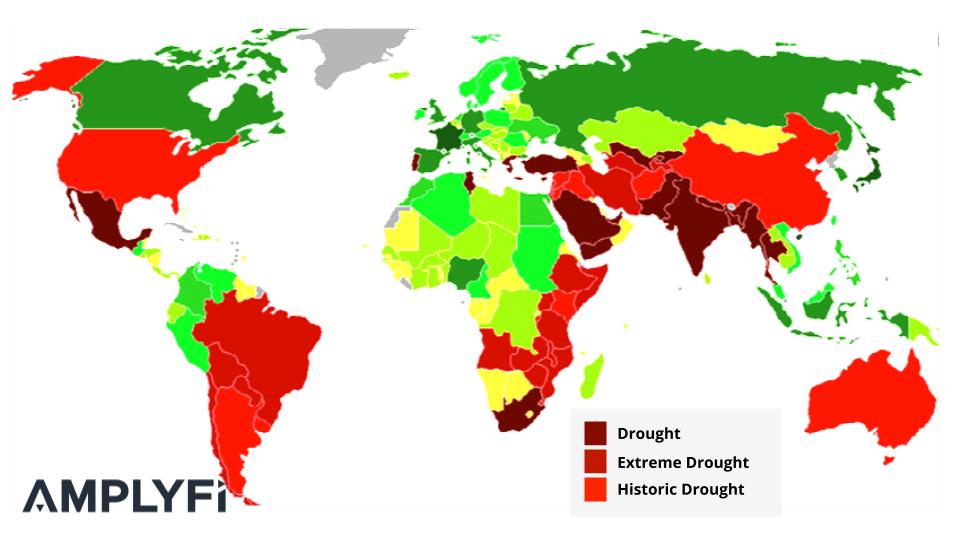
Climate change is one of the most pressing issues in society today, causing extreme weather conditions and affecting our food and water sources. Flooding and droughts are causing erosion of farmland and drying up water sources. Governments, corporations, and individuals must act to prevent further degradation of our food systems. Though climate change is widely acknowledged, what is being done to combat it?

Every year, the United Nations hosts the United Nations Climate Change Conference, more commonly called COP (Conference of Parties), to discuss the effects of climate change and the steps necessary to prevent further damage to the climate. What is COP27? COP27 was the 27th United Nations Conference on Climate Change and was held in November 2022 in Sharm El Sheikh, Egypt. COP28 will be held in November and December 2023 in Dubai, UAE.
It has been several months since COP27, and more needs to be done to address the main issues discussed at this conference. The President of COP27, Abdel Fattah El-Sisi, proposed a four-pillar approach to tackling climate change called the Climate Response for Sustaining Peace (CRSP). These four pillars are as follows:
- Strengthen the climate adaptation and peacebuilding nexus
- Sustain peace through climate-resilient food systems
- Advanced durable solutions to the climate-displacement nexus
- Accelerate climate finance for sustaining peace
Though all four steps must be met to achieve impactful change, today, we will focus on the second pillar of this plan: Sustaining peace through climate-resistant food systems. We’ve conducted research using AMPLYFI’s DeepInsight platform to explain why creating climate-resilient food systems was one of the most pressing issues for the United Nations in 2022.
Though we are seeing increased global polarisation around the topic of climate change, there is no doubt that we are all starting to feel the effects. As of 2022, 22 million people in the Horn of Africa are already experiencing drought-induced food insecurity. Drought is not limited to the African continent, however. Europe saw the hottest summer in 2022, with several countries recording their hottest day. The area around the Mediterranean saw vast numbers of wildfires last summer due to these extreme temperatures, and the wildfire season is starting early this year, as Spain has already seen a massive wildfire outside Valencia at the end of March. These fires release more CO2 into the air and burn large swatches of farmland, further contributing to food scarcity issues.
In North America, the US saw their third hottest summer on record, causing devastating effects in places like California and Arizona, where water sources dropped to record-low levels. Nearly 20% of California’s water suppliers have reported that they will soon face water shortages after their 4th consecutive year of droughts. Yet, droughts are just one example of extreme weather events causing an increase in food scarcity worldwide. In the heat map below created in DeepInsight, you can see the countries mentioned most in documents relating to food and water insecurity caused by climate change. This shows that these issues are global and not limited to one country or region.

What are the consequences of food scarcity?
Increased amounts of land becoming unsuitable for agriculture can lead to mass migration and the potential for increased violence, including civil unrest and resource wars. A report released by the Biden administration at the end of 2021 stated that we could see tens of millions of climate refugees in the coming decades, spurring desperation and the chance for increased violence. It is expected that the countries likely to have the largest numbers of climate refugees are: Afghanistan, Colombia, Guatemala, Haiti, Honduras, India, Iraq, Myanmar, Nicaragua and Pakistan. These countries are the most susceptible to mass migration due to their location, economic status and ability to extract natural resources. Though these countries have been singled out, the potential for this to affect exponentially more countries is high, especially as political unrest is rising around the globe.
For us to reach the goals set at COP27, in particular, the goal to create and maintain sustainable food systems, global leaders must take swift and drastic measures to ensure that we can mitigate the effects of climate change and prevent further degradation of our farmland and water systems.
Researched By: Rebecca Goldman – Customer Success Manager
In her role, Rebecca works to assist AMPLYFI customers with onboarding and continues the support throughout their experience with our company. Before joining Amplyfi, she worked in several different sales and account management roles in the UK and the United States.








